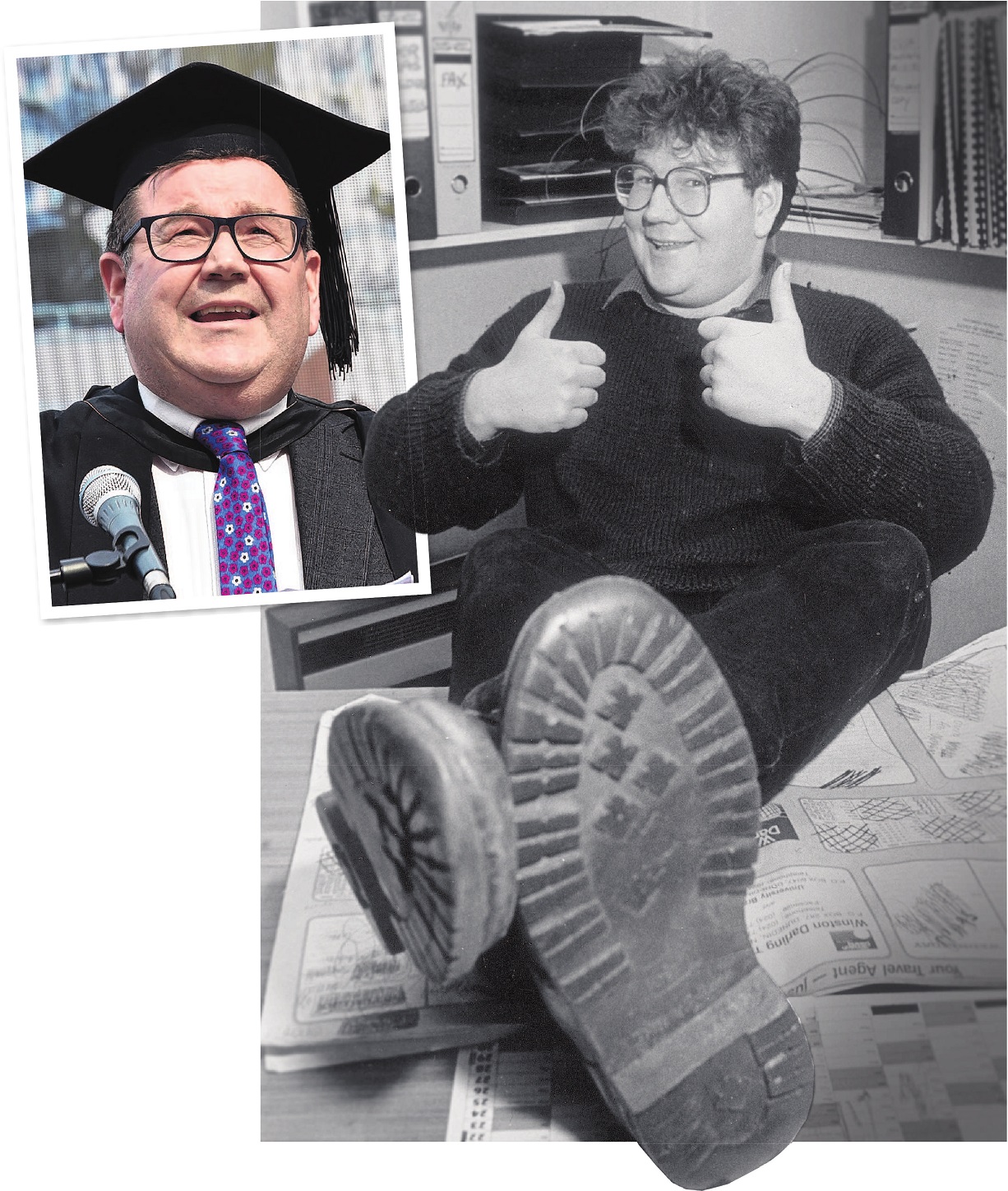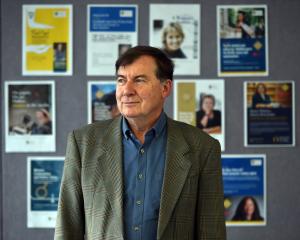New report says uni finances worse than forecast (Subscriber)
In a case of poacher turned gamekeeper, Mr Robertson, who as New Zealand University Students’ Association co-president once helped negotiate the end of a student occupation of the registry building in which he will soon be working, begins a five-year contract as vice-chancellor (VC) on July 1.
"It has been 31 years since I was the student president, so an awful lot has happened in that time," he told the Otago Daily Times yesterday.
"But I have always felt a really deep connection to the university, and indeed to the city and the province.
"I have never not been an Otago boy, and it feels good to be coming home."
Mr Robertson, who was raised in South Dunedin, earned a bachelor of arts degree in political studies while studying at Otago, before joining the foreign affairs ministry and then embarking on his political career.
He was finance minister for six years when Dame Jacinda Ardern was prime minister, and was her deputy prime minister for three of those years.
He had charge of the country’s finances during the Covid-19 recession and will face a similarly daunting fiscal challenge when assuming leadership of a university which has major economic issues and has had to call for voluntary redundancies to help try to balance its books.
Mr Robertson called on one of his old boss Dame Jacinda’s catchphrases when describing how he planned to tackle the university’s fraught budgetary situation.
"It is a challenging time for the whole tertiary sector and that includes Otago, but I have real confidence in the team at Otago.
"They have got a plan for managing through the financial situation and I am going to be doing my best to support that.
"A big thing for me is that Otago has got an extraordinary group of staff, such capable people from teaching, research and professional staff, and what they want is a VC who is going to back them.
"There are still challenges but together, with that team, we can do this."
The role of vice-chancellor traditionally goes to an academic.
Mr Robertson was relaxed about not having the orthodox CV of a VC applicant.
"I think the experience that I have had in leadership at government level, and the knowledge that I have because I have worked in the sector before, they are the things that I am bringing, but I will be working closely with senior academic staff," he said.
"I think of myself as academic-adjacent: I have two brothers who are professors in the [United] States and I also have a long association with the university.
"It is a dream job for me in many ways. I had a great experience as a student at the University of Otago. It set me up for my life and the opportunity to come back and create those kind of opportunities for future students is just huge."
Mr Robertson leaves a big hole in Labour’s senior ranks as it rebuilds following a severe election defeat last year, although his departure was not unexpected.
He will be replaced as finance spokesman by Barbara Edmonds, a lawyer and former parliamentary private secretary.
"Politics is an extraordinary privilege to be a part of and the team and the kaupapa is always bigger than the one person," Mr Robertson said.

"It is tough to leave a group of people who really are my family, but I see huge potential in the group who are left."
Mr Robertson said he would leave further reflection on his political career until he delivered his valedictory speech.
"But I am very proud of what we did in government."
Mr Robertson said Dunedin would be his permanent home and he and partner Alf Kaiwai would move south shortly.
"We are both really looking forward to it. I have always felt that Dunedin was home and I am really looking forward to coming back," Mr Robertson said.
Mr Robertson’s appointment was generally well-received by academic staff the ODT spoke to yesterday.
Tertiary Education Union branch president Craig Marshall said there was a sense of "positive optimism" about the appointment.
Many colleagues he had spoken to felt an outside appointment was sensible given the circumstances, and his personal view was that Mr Robertson was likely to prove quite a good choice.
"Whoever has that role needs to understand something about what the academic world is and how it functions — it isn’t necessarily true that you have to be an academic to have some understanding of that.
"I would have thought that people were looking for someone who’s a good manager, understands the system, who’s able to engage and to make appropriate changes ... bringing the majority of the university people along."
University chancellor Stephen Higgs said a broad, global search was carried out, which produced candidates from a wide range of backgrounds.
"Council ran a very robust process, including engagement through the staff advisory group to test the concept of appointing a non-academic candidate to the role," he said.
"It was critical that the successful candidate would bring the skills we need to both navigate the challenges faced by the tertiary education sector, both in New Zealand and globally."
Mr Robertson’s extensive senior leadership experience and proven track record in building effective partnerships would serve the university well.
"We were pleased that our staff advisory group, who provided feedback through the process, supported the appointment, and university council, was unanimous in its view."
The university’s financial position was a consideration when deciding to appoint Mr Robertson, Mr Higgs said.
"Grant’s appointment was made after careful consideration of who brought the right skill set to lead Otago University.
"He has a very good understanding of the university’s financial context and needs."
Mr Robertson will have a total remuneration package of $629,000 in his new role, far more than what he earns as an MP and almost twice as much as the basic salary of the deputy prime minister.
He can choose to live in University Lodge, which would be charged to his remuneration package at an independently assessed value.












